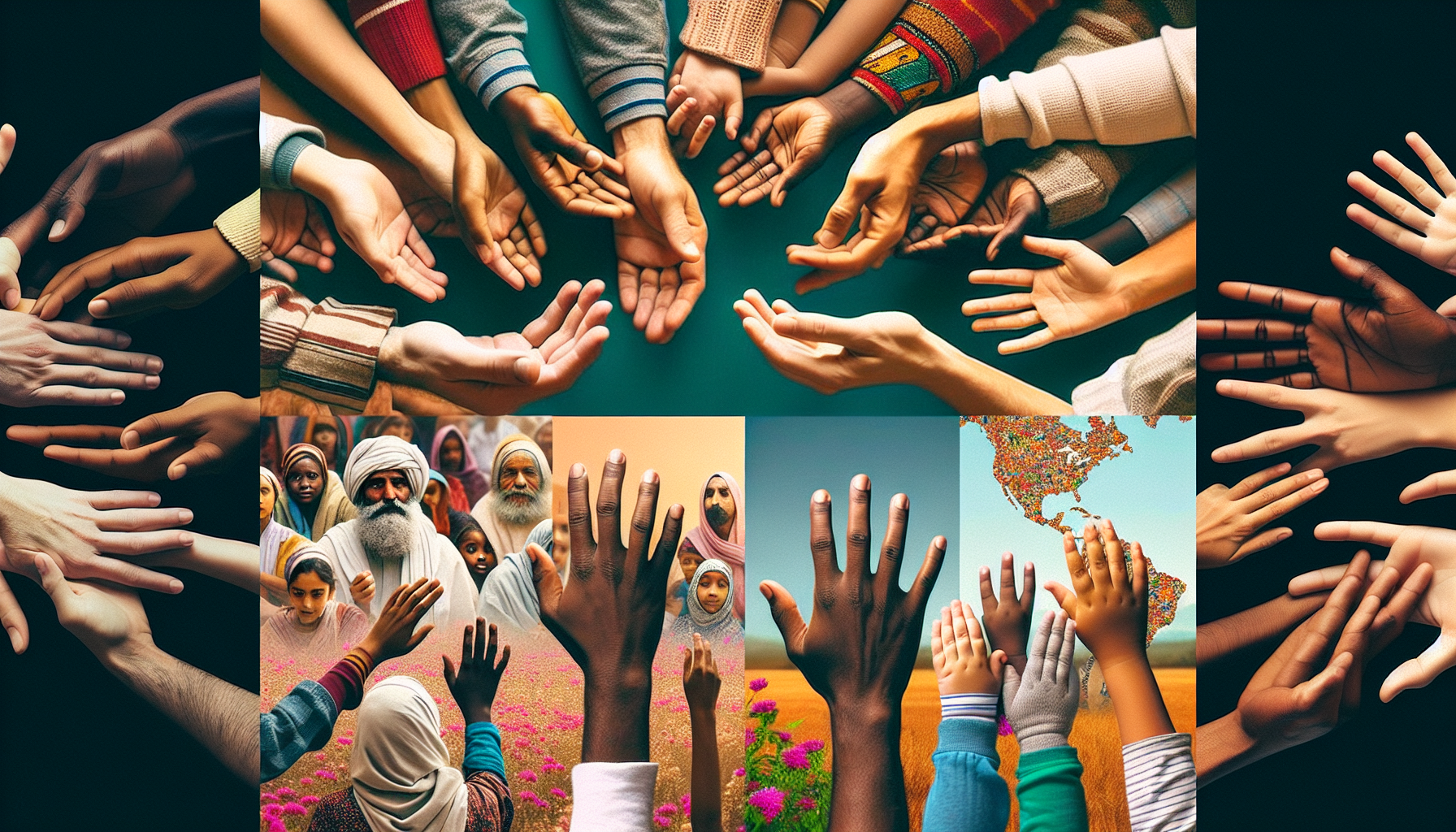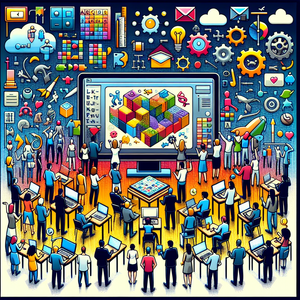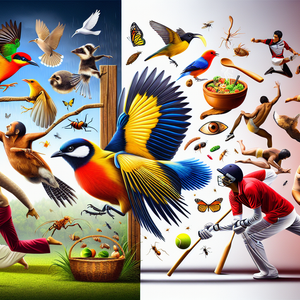The Evolution of Word Games: From Classic to Unlimited

Word games have roots that stretch back centuries. Traditional games like Scrabble, which debuted in the 1930s, laid the groundwork for competitive wordplay, while crossword puzzles gained popularity in the early 20th century. These games encouraged not only individual skill but also social interaction, as friends and family gathered around boards or shared puzzles in newspapers.
The Birth of Iconic Games
Scrabble, created by Alfred Butts, combined elements of crossword puzzles and anagrams, fostering a competitive spirit among players. Its success was a precursor to the rise of other word games, including Boggle and Bananagrams. Meanwhile, crossword puzzles, first published in the New York World in 1913, quickly became a staple of newspapers, inviting readers to engage with language in new and challenging ways.
The Digital Transformation
As technology advanced, so too did word games. The introduction of computers opened new avenues for gameplay, allowing for digital versions that could be played solo or against others online. The rise of mobile devices further propelled word games into the mainstream, making them accessible to a vast audience at any time. This shift paved the way for innovative formats and engaging mechanics that would redefine how we interact with language.
The Rise of Wordle and Its Unlimited Variant
In 2021, Wordle emerged as a cultural phenomenon, captivating millions with its simple gameplay: guess a five-letter word within six attempts. Its viral success highlighted the desire for quick yet intellectually stimulating entertainment. Players shared their results on social media, fostering a sense of community through friendly competition. This social aspect was further amplified by the game’s daily challenge format, which created a shared experience among players.
Community Engagement
Players across the globe engaged in a daily ritual of Wordle, bonding over their successes and failures through social media platforms. The game’s minimalist design and user-friendly interface made it accessible to players of all ages, reinforcing its appeal as a communal activity.
The Evolution to Unlimited
The release of Wordle Unlimited took the excitement to another level. By removing the constraints of daily gameplay, it offers an infinite number of word challenges. This flexibility allows players to engage at their own pace and skill level, making it more inclusive and adaptable. The unique mechanics of Wordle Unlimited not only retain the original game’s charm but also introduce new strategies for players seeking to enhance their skills.
Digital Adaptations and Their Impact on Engagement
The transformation from traditional to digital word games has fundamentally changed how players engage with language. Digital adaptations allow for instant feedback, which is crucial for learning and improvement. In Wordle Unlimited, players can experiment with word combinations, analyze their guesses, and refine their strategies in real-time. This dynamic interaction enhances cognitive engagement, encouraging players to think critically about language while enjoying the challenge.
Educational Applications
Moreover, the gamification of language learning has opened doors for educational applications. Many language learners now use games like Wordle Unlimited as a fun way to practice vocabulary and spelling. The instant gratification of solving a word puzzle makes language acquisition more enjoyable and less daunting, promoting a positive learning experience. Teachers are increasingly incorporating word games into their curricula, recognizing their potential to engage students in language learning.
The Future of Word Games in a Gamified World
As we look to the future, the evolution of word games shows no signs of slowing down. With advancements in artificial intelligence and virtual reality, we can expect even more immersive and interactive experiences. Imagine a word game that adapts to your skill level, offers real-time feedback, or even incorporates augmented reality to bring letters and words to life. The possibilities are endless.
The Role of Online Communities
Furthermore, the rise of online communities around games like Wordle Unlimited suggests that social interaction will continue to play a significant role in shaping the future of word games. Platforms that allow players to connect, share strategies, and celebrate achievements will likely thrive, creating vibrant cultures around these games. The collaborative aspect of word games is likely to become a focal point, with players working together to solve challenges and share insights.
The evolution of word games from classic formats to digital innovations like Wordle Unlimited illustrates the dynamic relationship between language, technology, and community. As we embrace new gameplay mechanics and engage with language in fresh ways, the future of word games looks promising. Whether for entertainment, education, or social connection, these games will continue to captivate and challenge players for generations to come. As we navigate this ever-changing landscape, one thing is certain: the love for word games remains timeless, bridging gaps between generations and fostering connections through the power of language.
Game Designer (Word and Puzzle Games)
Zynga, Scopely, independent game studios
Core Responsibilities
Design engaging game mechanics and user experiences specifically for word and puzzle games.
Collaborate with writers to develop compelling content, including word lists and game narratives.
Conduct playtesting sessions to gather user feedback and refine gameplay.
Required Skills
Proficiency in game design software (e.g., Unity, Unreal Engine) and familiarity with programming languages (e.g., C#).
Strong understanding of user experience (UX) design principles and player psychology.
Creative thinking and problem-solving skills, particularly in developing innovative gameplay strategies.
Educational Game Developer
Kahoot, Quizlet, Edmodo
Core Responsibilities
Create educational word games that facilitate language learning, targeting various age groups and skill levels.
Collaborate with educators to integrate curriculum standards into game design.
Analyze player data to improve educational effectiveness and engagement.
Required Skills
Experience in instructional design and familiarity with educational theories related to language acquisition.
Strong programming skills, particularly in languages relevant to game development (e.g., Java, Python).
Ability to create visually appealing and interactive game interfaces that enhance the learning experience.
Community Manager for Online Games
Activision Blizzard, Riot Games, independent gaming platforms
Core Responsibilities
Foster and engage online communities around word games, facilitating discussions and player interactions.
Develop marketing strategies to promote new game features and community events.
Monitor and respond to player feedback, ensuring a positive gaming experience.
Required Skills
Excellent communication skills and experience in social media management.
Understanding of community engagement tactics and online gaming culture.
Ability to analyze community metrics and adjust strategies accordingly.
UX/UI Designer for Mobile Games
King, Supercell, Glu Mobile
Core Responsibilities
Design intuitive user interfaces for word games that enhance player experience and engagement.
Conduct user testing to gather feedback on design prototypes and make iterative improvements.
Collaborate with developers to implement design elements effectively within the game.
Required Skills
Proficiency in design tools such as Adobe XD, Sketch, or Figma.
Strong portfolio showcasing experience in mobile game design and a good understanding of player interaction.
Ability to create wireframes, prototypes, and high-fidelity designs that are user-focused.
Linguistic Data Analyst for Gaming
Google, Microsoft, specialized gaming startups
Core Responsibilities
Analyze language data and player interactions to enhance word game content and mechanics.
Collaborate with game designers to develop algorithms that improve word suggestion and gameplay features.
Research language trends to keep word games relevant and engaging for users.
Required Skills
Strong analytical skills with experience in data analysis tools (e.g., SQL, Python).
Background in linguistics or language studies, with a focus on computational linguistics.
Ability to present findings and insights to non-technical stakeholders effectively.


